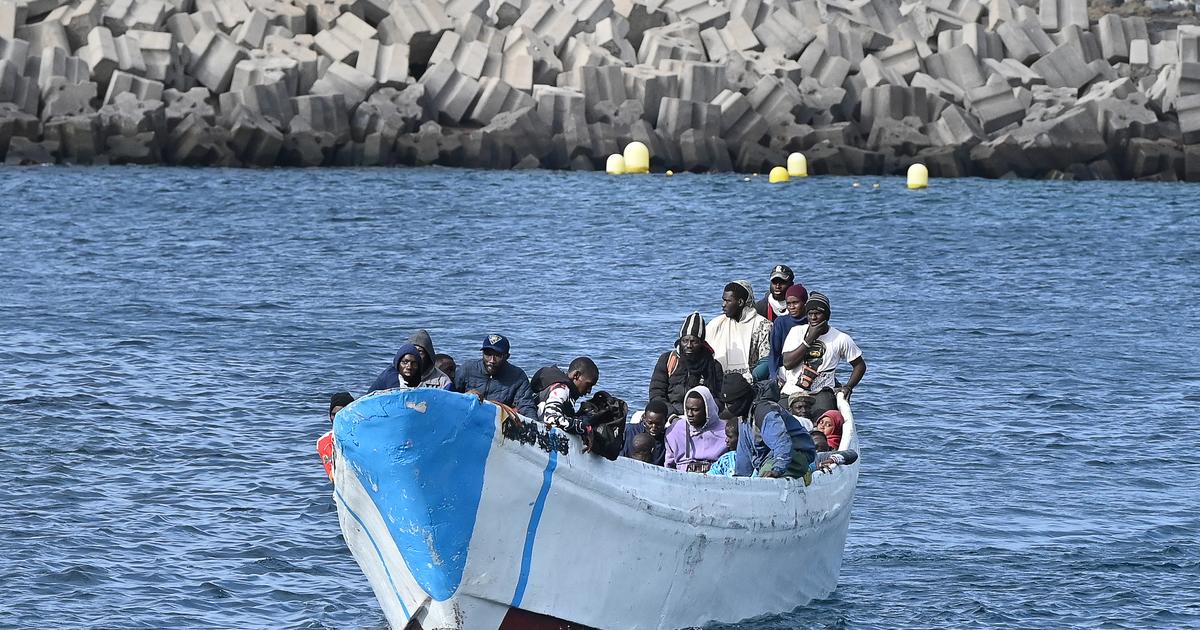China in the Corona blind flight: WHO criticizes "far too low death toll" - search for dangerous mutations
Created: 01/07/2023 10:17 am
By: Christiane Kuehl
Covid 19 patients and their relatives in a hospital ward in Tangshan near Beijing: only pictures like this bear witness to the corona catastrophe in China.
© Noel Celis/afp
The WHO criticizes China for the lack of reliable corona data The death toll is far too low.
Nobody can get an idea of the situation anymore.
Meanwhile, experts are looking for mutations.
Beijing/Munich – There is no longer any data, no information on new infections, and the number of deaths is absurdly low.
While Omikron is rushing through China, the Chinese government recently stopped publishing the number of cases.
Only people who actually die of a respiratory or lung infection are considered corona dead.
Those who do not need to be hospitalized are considered asymptomatic or only affected by “mild” symptoms.
The authorities are now even advising against testing: those who have not been tested are not included in the statistics.
And what "mild" is, there is no definition.
Meanwhile, social media is full of people complaining about nasty symptoms of the disease.
"The sore throat is killing me," the
South China Morning Post quoted as saying
a user.
"Don't trust the experts - go to the hospital when you're sick," commented another.
Since the end of the zero-Covid policy, leading experts have described Omikron succinctly as a "severe cold."
But how extreme the situation must be can be seen from the many pictures of overcrowded crematoria or hospitals.
It is unclear whether China wants to cover up the extent of the chaos or simply no longer has access to data itself - because nobody has to test themselves anymore.
However, anger is growing worldwide because China opened its borders at the same time and people are now allowed to travel abroad unhindered for the first time since the beginning of 2020.
No country wants to catch new mutations that nobody even suspects are circulating in the People's Republic.
WHO criticizes China's lack of transparency
Even the World Health Organization (WHO), which normally acts diplomatically, is now openly criticizing China for its lack of transparency.
According to the organization, nobody can get a picture of the situation anymore.
WHO emergency director Mike Ryan criticized the death toll, which was far too low.
WHO Director-General of the World Health Organization Tedros Adhanom Ghebreyesus stressed on Twitter that in the absence of comprehensive information from China, it is understandable that countries are taking measures that they believe will protect their populations.
Many countries in Europe, including Germany, as well as the USA, South Korea and Japan have now introduced compulsory corona tests for people arriving from China.
Several states have stepped up sequencing of viruses obtained from travel tests to get a better picture of China's variant situation.
Airports in Belgium have launched a pilot project that analyzes sewage from planes that have landed from China for the virus - especially for new variants.
Frankfurt Airport is also preparing for such waste water investigations.
Worry about new mutations from China abroad
The WHO, meanwhile, calls on China to regularly exchange specific real-time data on the epidemiological situation, including genetic sequencing, data on hospitalizations, intensive care unit admissions and deaths.
She also requested data on the vaccination campaign.
But China rejected the allegations by the WHO on Thursday.
"Since the early days of Covid, China has shared information and data openly and transparently with the international community," a foreign ministry spokeswoman said in Beijing.
But it is only through such tests that foreign health authorities can get direct access to virus material from the People's Republic.
For foreign countries, the decisive question is whether the omicron tsunami in China produced new mutations.
Because as long as travelers from the People's Republic only bring variants that circulate in Europe anyway, they do not pose any additional danger.
Nevertheless, the danger is real: Because where the virus rages unchecked, many mutations arise, possibly even worse ones.
variants
China: Cooperation in virus data for variant search works
In the search for dangerous variants, the international database of the Global Initiative on Sharing all Influenza Data (GISAID) - the largest public sequence database for influenza viruses - has so far given the all-clear.
"China is stepping up efforts on genomic surveillance" of the virus and its variants, GISAID said on Thursday.
Health authorities have provided the latest coronavirus sequencing data of current cases from Beijing, Shanghai, Guangzhou and several provinces across the country.
"Preliminary analysis indicates that all sequences are very similar to variants that emerged in other parts of the world between July and December."
also read
Putin's new miracle weapon: the "Zirkon" hypersonic missile as a nightmare for military strategists?
TO READ
Berlin New Year's Eve as a "break": call for Germany-wide consequences - Faeser changes the first rule
TO READ
Military aid in the Ukraine war: Biden and the USA put together the largest package so far
TO READ
"Illustrated in black and white" - Pope Benedict's private secretary should "destroy" records
TO READ
After four days of deadlock: Kevin McCarthy elected chairman of the US House of Representatives
TO READ
Fancy a voyage of discovery?
My space
"The variants circulating in China are already circulating in the EU and therefore do not pose a challenge for the citizens of the EU and the EEA European Economic Area," the European Center for Disease Prevention and Control (ECDC) also judged.
China: There are only estimates for the number of cases and deaths
First of all, this is good news.
But in view of the probably huge number of infected people, it is completely unclear whether the authorities are even remotely able to genetically record every variant.
The epidemiologist Ben Cowling from the University of Hong Kong, for example, expects a billion infected people.
That would be more than 70 percent of the entire Chinese population.
The former vice director of China's health authority, Feng Zijian, even warned shortly after the end of the zero-Covid policy in early December that 80 to 90 percent of Chinese would become infected.
According to internal estimates by the authority, 248 million people in China were infected with the virus in the first three weeks of December alone.
How many people die from omicron is completely unclear.
Officially, China counted just 20 deaths in the two weeks to Thursday (January 5), a completely absurd number.
Even if only those who died “from Covid” are counted according to the narrow official definition, there would have to be significantly more.
Clues are provided worldwide by data on excess mortality - i.e. the additional deaths in a period compared to long-term average values in this period.
But that is not the case in the current wave.
China: High excess mortality at a renowned academy
The state-affiliated Chinese Academy of Engineering gave a rare insight into the possible excess mortality on Friday - whether consciously or not is unknown.
It announced on its website that between December 15 and January 4, 20 of its active and emeritus members had died.
According to this, more high-ranking engineers and scientists from the renowned academy died in less than a month than is normally the case in a year.
There have been an average of 16 deaths per year between 2017 and 2020, down from 13 in 2021, according to the
South China Morning Post
reported.
Of course, the academy, whose 900 or so members work on prestigious projects like the high-speed rail network and the Tiangong space station, is just a tiny microcosm.
But the number of deaths at the Academy indicates an incredibly high excess mortality.
Beijing's Tsinghua University, a leader in engineering and science, also trended on social media when it began posting an unusually large number of obituaries on its campus network.
And in Shanghai, the sudden death of pharmacologist Jiang Hualiang on December 24 shocked people, according to the South China Morning Post, because the 57-year-old, a member of the Chinese Academy of Sciences, led some important drug development programs, including to treat Covid-19.
There have also been mysterious celebrity deaths.
The next wave threatens for the Chinese New Year celebrations
Shortly before the Chinese New Year on January 22, the wave threatens to swell again - and hit regions in the hinterland whose health systems are even less prepared than in the big cities.
The Lunar New Year traditionally sees hundreds of millions of people travel to the countryside to visit their relatives to celebrate what could become a superspreader event this year.
Many municipal authorities have therefore already called on people not to travel home this year and to celebrate online instead.
That's just a sign of real concern among officials, even if no one is talking about real numbers.
On the outside, some prefer to play up the dangers for China - for example through the XBB 1.5 variant, which has become dominant in the USA and is said to be even more contagious than all previous Omicron variants.
"The Chinese are now particularly concerned that the US variant XBB.1.5 will be introduced to China and trigger a new wave of the pandemic," tweeted influential nationalist commentator Hu Xijin, former editor-in-chief of the party's
Global Times newspaper
.












